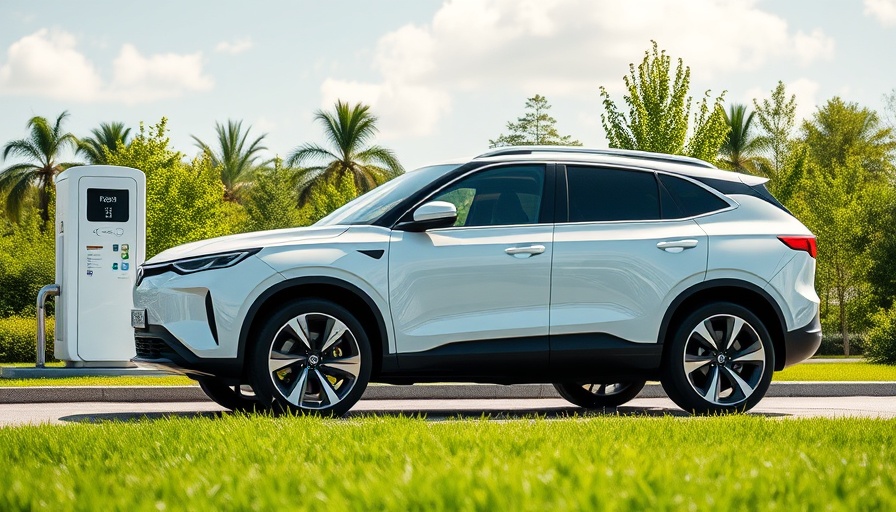
Understanding the Hydrogen Debate in 2024
Amid the rising tide of electric vehicles (EVs) and hybrid models, hydrogen-powered cars have captured some attention as an alternative means of propulsion. However, for all their promise on paper, these vehicles face a myriad of challenges that raise eyebrows among potential buyers and industry experts alike. As we dive into the current state of hydrogen fuel cell electric vehicles (FCEVs), it's important to examine both the enthusiasm and skepticism surrounding this technology.
The Infrastructure Challenge: A Major Roadblock
One of the critical hurdles hydrogen-powered cars face is the lack of robust refueling infrastructure. Currently, the United States has approximately 55 public hydrogen stations, primarily concentrated in California, and several of these stations are at risk of closing down due to dwindling consumer demand. The complexity and expense of developing hydrogen refueling sites — often exceeding $2 million — pose significant barriers to expansion when compared to the relative accessibility of EV charging stations. For prospective buyers outside of California, this means that hydrogen vehicles might not be practical options, effectively limiting their market.
Examining Production Challenges
The environmental benefits touted by hydrogen vehicles come under scrutiny when analyzing production methods. Most hydrogen is produced through steam methane reforming, a process that results in substantial carbon dioxide emissions. While some companies are exploring greener methods through renewable electrolysis, those options remain relatively expensive. Until the industry can lower those production costs and improve efficiency, the carbon footprint of hydrogen production casts a shadow over FCEVs' eco-friendly allure.
Cost and Consumer Concerns
The operational costs associated with hydrogen vehicles add another layer of complexity for consumers. With hydrogen fuel prices in California reaching over $36 per kilogram, filling up can cost more than $120, making hydrogen cars more expensive to fuel than both traditional gasoline vehicles and many electric models. This steep cost, combined with the higher purchase price of models like the Toyota Mirai and Hyundai Nexo, raises questions about the practicality of hydrogen technology for everyday drivers. The lack of consumer incentives further exacerbates potential buyers' hesitance.
Public Perception: The Skeptical Market
Public perception plays a crucial role in shaping the future of hydrogen vehicles. Many consumers express concerns about reliability, particularly regarding the availability and maintenance of hydrogen refueling stations. Periodic supply disruptions can leave drivers stranded, making FCEVs less appealing when compared to traditional vehicles or even EVs, which benefit from a growing charging infrastructure. This skepticism reflects a broader hesitation many feel toward adopting a technology that hasn’t yet demonstrated its value in practical use.
Future Predictions: Can Hydrogen Cars Compete?
If the automobile industry continues to make significant investments in battery technology and charging infrastructure, the question arises: Can hydrogen-powered cars compete effectively? Currently, the emphasis seems to be shifting toward electric vehicles with improving technology and decreasing costs, while hydrogen's appeal is hampered by infrastructure limitations and consumer doubts. Unless substantial advancements are realized in hydrogen production and distribution, as well as a compelling case made for their advantages over EVs, the future of hydrogen-powered vehicles remains uncertain.
Concluding Thoughts on the Hydrogen Landscape
As potential car buyers navigate the complexities of vehicle choices in 2024, it’s essential to consider all available options critically. Hydrogen-powered cars offer a fascinating glimpse into what could be a part of our future automotive landscape, but they are not without significant drawbacks. With ongoing advancements in battery technology leading the way, it seems electric vehicles will continue to dominate, while hydrogen's role might remain a niche market unless major shifts occur in infrastructure and production methods.
Engaging with the car industry’s ongoing transformation means understanding various vehicle technologies and their implications on the environment and economics. For those considering their next vehicle purchase, diving deep into all features, costs, and technological trends will lead to a more informed decision.
 Add Row
Add Row  Add
Add 




Write A Comment